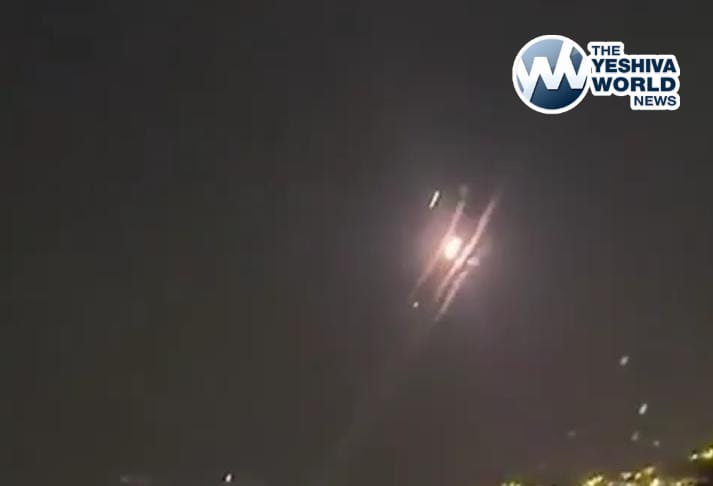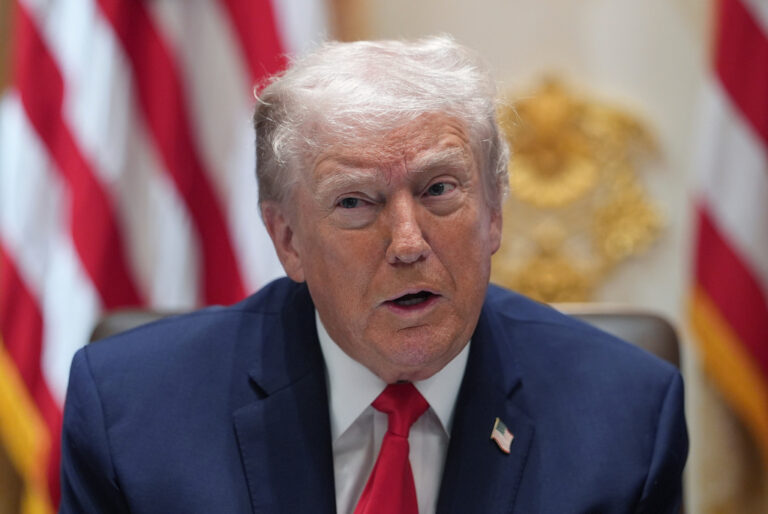 Supreme Court nominee Neil Gorsuch has shown a willingness to limit the participation of environmental groups in lawsuits involving public lands, writing in one case that allowing conservationists to intervene could complicate and slow down the judicial process, according to an Associated Press review of his rulings as a federal appeals court judge.
Supreme Court nominee Neil Gorsuch has shown a willingness to limit the participation of environmental groups in lawsuits involving public lands, writing in one case that allowing conservationists to intervene could complicate and slow down the judicial process, according to an Associated Press review of his rulings as a federal appeals court judge.
Gorsuch has spent a decade on the Denver-based 10th U.S. Circuit Court of Appeals, which hears disputes about public lands ranging from energy companies’ drilling rights to the use of off-road vehicles in national forests across six Western states.
With public lands cases and other contentions issues, Gorsuch applied a uniform set of legal principles, said Donald Kochan, associate dean and professor at Chapman University Dale E. Fowler School of Law.
“I think that his record, although the number of cases is quite limited, shows that at times it has led to decisions that one might consider environmentally favorable, and about an equal number of times it has led to decisions some might think are environmentally unfavorable,” Kochan said. “For those who think that he will lean toward one outcome or another, I think they’ll be surprised on how the more neutral application of his philosophy will often lead to confounding results.”
In public lands cases in which he sought to limit environmental groups’ participation, Gorsuch at times has favored the position of federal agencies. But his record on such cases is relatively limited considering that the territory the appeals court covers contains vast swaths of national forests and parks.
Denise Grab, a lawyer with New York University Law School’s Institute for Policy Integrity, said Gorsuch has a “mixed bag” of rulings related to public lands and the environment, yet seems “unusually eager to throw roadblocks in the way of public interest groups who want their day in court.”
In 2013, Gorsuch parted from the two-judge majority on a panel that said environmental groups should have the chance to participate in a particular suit. The New Mexico Off-Highway Vehicle Alliance had challenged a plan that reduced the number of roads and trails available to off-road vehicles in Santa Fe National Forest.
His colleagues on the appeals court said the groups should be allowed to join the case because “there is no guarantee that the Forest Service will make all of the environmental groups’ arguments in litigation.”
Gorsuch disagreed, saying there was only one issue to consider and no conflict between the groups and government over how to approach it.
“An intervenor becomes a full-fledged party, able to conduct discovery, file motions, and add new issues and complexity and delay to the litigation,” Gorsuch wrote.
Grab called that “very unusual,” and noted that neither party in the suit had objected to the environmental groups intervening.
“An environmental group is not the government. It has different goals,” Grab said. “In most cases, intervention is allowed.”
Gorsuch doesn’t always take the road less traveled, and often sides with other members of the 10th Circuit.
When an outdoor group sued the U.S. Forest Service over a temporary order that allowed motorcycles to ride on certain trails inside western Colorado’s San Juan National Forest, Gorsuch wrote a unanimous opinion in May 2015 for the three-judge panel dismissing the case on procedural grounds.
Backcountry Hunters and Anglers could not establish their ability to bring the case because if the order they challenged as being too lenient was struck down, the agency would revert to an earlier, even less-strict version of the trail plan, so the organization’s conservation goal would not be advanced, Gorsuch wrote.
“A further victory for Backcountry in this case promises only more, not fewer, vehicles on forest trails and the group hasn’t offered a timely argument how that turn of events might help its members,” he wrote.
Gorsuch has been sympathetic to outdoor enthusiasts, even when ruling against them, and has shown his Colorado roots in his writings.
“Everyone enjoys a trip to the mountains in the summertime. One popular spot is Mount Evans – a fourteen thousand foot peak just a short drive from Denver and with a paved road that goes right to the summit,” he wrote in a 2011 case.
In that case, Gorsuch was on a panel that found that the Forest Service could legally charge fees to visit the summit because it provided amenities such as a nature center, which thousands of visitors use annually. Those who sued had challenged the fee policy, saying it overstepped the Forest Service’s statutory authority to charge visitors.
Writing for the panel, Gorsuch said the fees were permissible, but he left open the possibility that the fees could be challenged, just not the way the plaintiffs sought to.
“In rejecting the plaintiffs’ facial challenge we hardly mean to suggest that the Service’s policy can’t be attacked at all. It might well be susceptible to a winning challenge as applied to certain particular visitors, perhaps even the plaintiffs themselves. But that’s a path the plaintiffs haven’t asked us to explore and so one we leave for another day,” Gorsuch wrote.
In 2011, Gorsuch showed his distaste for drawn-out litigation when he sided with a majority of other judges who found The Wilderness Society lacked standing in a suit related to off-road vehicles on federal land, including in Grand Staircase-Escalante National Monument.
Officials in Kane County, Utah, had asserted rights on roads crossing the federal land and removed U.S. Bureau of Land Management signs prohibiting off-road vehicles. The county put up its own signs and passed an ordinance allowing the vehicles.
The environmental groups sued, saying the county’s actions violated federal rules pertaining to public lands. The district judge ruled in favor of the environmental groups, a decision upheld by a three-judge panel of the 10th U.S. Circuit Court of Appeals.
A review by the full appeals court found that the environmental groups had no valid rights of their own in the property and vacated the district court’s ruling.
Gorsuch concurred, but wrote that most of the suit was moot by that point, anyway. The county had long ago rescinded its ordinance and removed the signs and decals that had allowed off-road vehicles.
“There are no (off-highway vehicles) left to fight over; the Society won exactly the relief it sought merely by filing its lawsuit; still, this litigation has lumbered on,” he wrote. “We don’t usually prolong litigation in this way, allowing the fight to continue after one side has thrown in the towel. Especially when carrying on the fight requires us to decide novel and hotly disputed questions of law.”
(AP)










